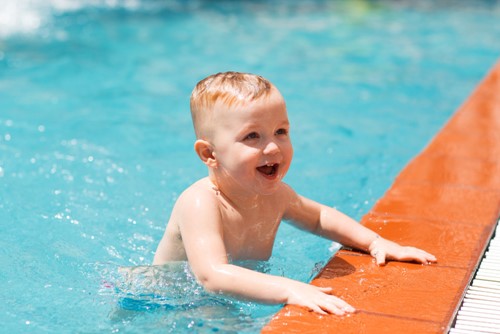5 Things You Can Do To Help Your Child's Fear Of Water
Water can be a source of both excitement and fear for many children. While some kids eagerly splash around in pools and enjoy bath time, others develop a fear of water that can hinder their enjoyment of aquatic activities.

As a parent, your role is crucial in helping your child overcome this fear and encouraging them to embrace the water confidently. Whether you're preparing for swimming lessons in Edinburgh or just hoping to make bath time more enjoyable, these five strategies can make a significant difference.
1. Start Early and Gradually
One of the keys to helping your child overcome their fear of water is to begin early and progress at their pace. Introduce your child to water-related activities from a young age, starting with gentle exposure in a controlled environment. For instance, keep the water level low during bath time and ensure it's at a comfortable temperature. This initial step allows your child to become accustomed to the sensation of water without overwhelming them.
As your child grows more comfortable, gradually increase the water level. Let them play with water toys, splash around, and explore the water at their own pace. The goal is to build confidence and trust in the water's presence.
2. Positive Associations
To combat fear, it's essential to create positive associations with water. Make water-related activities fun and enjoyable. Consider using bath toys, colourful rubber ducks, or other engaging bath accessories during bath time. These playful elements can distract your child from any lingering fears and make the experience more enjoyable.
Additionally, introduce simple water games like pouring water from one container to another or blowing bubbles in the bath. These activities can help your child see water as a source of entertainment and relaxation, gradually reducing their anxiety.
3. Swimming Lessons in Edinburgh
Enrolling your child in swimming lessons in Edinburgh is an excellent way to provide them with professional guidance and support. Certified instructors are trained to work with children of all ages and abilities, including those who may have a fear of water. Swimming lessons provide a structured and safe environment for your child to learn essential water safety skills and gain confidence in the water.
Instructors use age-appropriate techniques and games to help children become comfortable in the aquatic environment. These lessons not only focus on swimming skills but also emphasise water safety, ensuring that your child gains the knowledge and confidence needed to enjoy the water responsibly.
4. Lead by Example
Children often learn by observing their parents or caregivers. If you're comfortable in the water, your child is also more likely to feel at ease. Join your child in the pool or participate in water-based activities together. Show them that being in the water can be a positive and enjoyable experience.
Start by gently holding your child and supporting them in the water. Gradually encourage them to explore and move around while you provide a reassuring presence. Your involvement can boost their confidence and reinforce the idea that water is a safe and fun environment.
5. Stay Patient and Supportive
Maintaining patience and understanding as your child works through their fear of water is essential. Avoid rushing or forcing them into situations that may overwhelm them. Instead, offer encouragement and praise their efforts, no matter how small. Celebrate each achievement, whether it's putting their face in the water for a moment or learning to float with support.
Building trust and confidence takes time, and every child progresses at their own pace. Maintain a supportive attitude, and be there to comfort and reassure your child when needed. Creating a positive and stress-free environment is essential for helping them overcome their fear of water.
Conclusion
Helping your child conquer their fear of water is a gradual process that requires patience, positivity, and support. Whether you're preparing for swimming lessons in Edinburgh or simply looking to make bath time more enjoyable, these strategies can guide you in helping your child develop confidence in the water.
Remember that every child is unique, and their progress may vary. Customise your approach to suit your child's individual needs and comfort levels. Ultimately, the goal is to empower your child to feel comfortable and secure in the water, allowing them to enjoy the many benefits of swimming and water-related activities. With your guidance and support, your child can overcome their fear of water and embark on a lifetime of aquatic adventures with confidence and joy.